- Home
- L. M. Montgomery
Emily's Quest Page 2
Emily's Quest Read online
Page 2
"Dec. 20, 19-
"Something nice happened to-day I feel pleasantly exhilarated. Madison's took my story, A Flaw in the Indictment!!!! Yes, it deserves some exclamation-points after it to a certainty. If it were not for Mr. Carpenter I would write it in italics. Italics! Nay, I'd use capitals. It is very hard to get in there. Don't I know! Haven't I tried repeatedly and gained nothing for my pains but a harvest of 'we-regrets' - And at last it has opened its doors to me. To be in Madison's is a clear and unmistakable sign that you're getting somewhere on the Alpine path. The dear editor was kind enough to say it was a charming story.
"Nice man!
"He sent me a check for fifty dollars. I'll soon be able to begin to repay Aunt Ruth and Uncle Wallace what they spent on me in Shrewsbury. Aunt Elizabeth as usual looked at the check suspiciously but for the first time forebore to wonder if the bank would really cash it. Aunt Laura's beautiful blue eyes beamed with pride. Aunt Laura's eyes really do beam. She is one of the Victorians. Edwardian eyes glitter and sparkle and allure but they never beam. And somehow I do like beaming eyes - especially when they beam over my success.
"Cousin Jimmy says that Madison's is worth all the other Yankee magazines put together in his opinion."
"I wonder if Dean Priest will like A Flaw in the Indictment. And if he will say so. He never praises anything I write nowadays. And I feel such a craving to compel him to. I feel that his is the only commendation, apart from Mr. Carpenter's, that is worth anything.
"It's odd about Dean. In some mysterious way he seems to be growing younger. A few years ago I thought of him as quite old. Now he seems only middle-aged. If this keeps up he'll soon be a mere youth. I suppose the truth is that my mind is beginning to mature a bit and I'm catching up with him. Aunt Elizabeth doesn't like my friendship with him any more than she ever did. Aunt Elizabeth has a well-marked antipathy to any Priest. But I don't know what I'd do without Dean's friendship. It's the very salt of life."
"January 15, 19-
"To-day was stormy. I had a white night last night after four rejections of MSS. I had thought especially good. As Miss Royal predicted, I felt that I had been an awful idiot not to have gone to New York with her when I had the chance. Oh, I don't wonder babies always cry when they wake up in the night. So often I want to do it, too. Everything presses on my soul then and no cloud has a silver lining. I was blue and disgruntled all the forenoon and looked forward to the coming of the mail as the one possible rescue from the doldrums. There is always such a fascinating expectancy and uncertainty about the mail. What would it bring me? A letter from Teddy - Teddy writes the most delightful letters. A nice thin envelope with a check? A fat one woefully eloquent of more rejected MSS? One of Ilse's fascinating scrawls? Nothing of the sort. Merely an irate epistle from Second-cousin-once-removed Beulah Grant of Derry Pond, who is furious because she thinks I 'put her' into my story Fools of Habit, which has just been copied into a widely circulated Canadian farm paper. She wrote me a bitterly reproachful letter which I received to-day. She thinks I 'might have spared an old friend who has always wished me well.' She is 'not accustomed to being ridiculed in the newspapers' and will I, in future, be so kind as to refrain from making her the butt of my supposed wit in the public press. Second-cousin-once-removed Beulah wields a facile pen of her own, when it comes to that, and while certain things in her letter hurt me other parts infuriated me. I never once even thought of Cousin Beulah when I wrote that story. The character of Aunt Kate is purely imaginary. And if I had thought of Cousin Beulah I most certainly wouldn't have put her in a story. She is too stupid and commonplace. And she isn't a bit like Aunt Kate, who is I flattered myself, a vivid, snappy, humorous old lady.
"But Cousin Beulah wrote to Aunt Elizabeth too, and we have had a family ruction. Aunt Elizabeth won't believe I am guiltless - she declares Aunt Kate is an exact picture of Cousin Beulah and she politely requests me - Aunt Elizabeth's polite requests are awesome things - not to caricature my relatives in my future productions.
"'It is not,' said Aunt Elizabeth in her stateliest manner, 'a thing any Murray should do - make money out of the peculiarities of her friends.'
"It was just another of Miss Royal's predictions fulfilled. Oh, was she as right about everything else? If she was-
"But the worst slam of all came from Cousin Jimmy, who had chuckled over Fools of Habit.
"'Never mind old Beulah, pussy,' he whispered. 'That was fine. You certainly did her up brown in Aunt Kate. I recognised her before I'd read a page. Knew her by her nose.' There you are! I unluckily happened to dower Aunt Kate with a 'long, drooping nose.' Nor can it be denied that Cousin Beulah's nose is long and drooping. People have been hanged on no clearer circumstantial evidence. It was of no use to wail despairingly that I had never even thought of Cousin Beulah. Cousin Jimmy just nodded and chuckled again.
"'Of course. Best to keep it quiet. Best to keep anything like that pretty quiet.'
"The worst sting in all this is, that if Aunt Kate is really like Cousin Beulah Grant then I failed egregiously in what I was trying to do.
"However, I feel much better now than when I began this entry. I've got quite a bit of resentment and rebellion and discouragement out of my system.
"That's the chief use of a diary, I believe."
III
"Feb. 3, 19-
"This was a 'big day' I had three acceptances. And one editor asked me to send him some stories. To be sure, I hate having an editor ask me to send a story, somehow. It's far worse than sending them unasked. The humiliation of having them returned after all is far deeper than when one just sends off a MS. to some dim impersonality behind an editorial desk a thousand miles away.
"And I have decided that I can't write a story 'to order.' 'Tis a diabolical task. I tried to lately. The editor of Young People asked me to write a story along certain lines. I wrote it. He sent it back, pointing out some faults and asked me to rewrite it. I tried to. I wrote and rewrote and altered and interlined until my MS. looked like a crazy patchwork of black and blue and red inks. Finally I lifted one of the covers of the kitchen stove and dumped in the original yarn and all my variations thereof.
"After this I'm just going to write what I want to. And the editors can be - canonised!
"There are northern lights and a misty new moon tonight."
IV
Feb. 16, 19-
"My story What the Jest Was Worth was in The Home Monthly to-day. But I was only one of 'others' on the cover. However, to balance that I have been listed by name as 'one of the well-known and popular contributors for the coming year' in Girlhood Days. Cousin Jimmy has read this editor's foreword over half a dozen times and I heard him murmuring 'well-known and popular' as he split the kindlings. Then he went to the corner store and bought me a new Jimmy-book. Every time I pass a new milestone on the Alpine path Cousin Jimmy celebrates by giving me a new Jimmy-book. I never buy a notebook for myself. It would hurt his feelings. He always looks at the little pile of Jimmy-books on my writing table with awe and reverence, firmly believing that all sorts of wonderful literature is locked up in the hodge-podge of description and characters and 'bits' they contain.
"I always give Dean my stories to read. I can't help doing it, although he always brings them back with no comment, or, worse than no comment - faint praise. It has become a sort of obsession with me to make Dean admit I can write something worth while in its line. That would be triumph. But unless and until he does, everything will be dust and ashes. Because - he knows."
V
"April 2, 19-
"The spring has affected a certain youth of Shrewsbury who comes out to New Moon occasionally. He is not a suitor of whom the House of Murray approves. Nor, which is more important, one of whom E. B. Starr approves. Aunt Elizabeth was very grim because I went to a concert with him. She was sitting up when I came home.
"'You see I haven't eloped, Aunt Elizabeth,' I said. 'I promise you I won't. If I ever want to marry any one I'll tell you so a
nd marry him in spite of your teeth.'
"I don't know whether Aunt Elizabeth went to bed with an easier mind or not. Mother eloped - thank goodness! - and Aunt Elizabeth is a firm believer in heredity."
VI
"April 15, 19-
"This evening I went away up the hill and prowled about the Disappointed House by moonlight. The Disappointed House was built thirty-seven years ago - partly built, at least - for a bride who never came to it. There it has been ever since, boarded up, unfinished, heart-broken, haunted by the timid, forsaken ghosts of things that should have happened but never did. I always feel so sorry for it. For its poor blind eyes that have never seen - that haven't even memories. No homelight ever shone out through them - only once, long ago, a gleam of firelight. It might have been such a nice little house, snuggled against that wooded hill, pulling little spruces all around it to cover it. A warm, friendly little house. And a good-natured little house. Not like the new one at the Corner that Tom Semple is putting up. It is a bad-tempered house. Vixenish, with little eyes and sharp elbows. It's odd how much personality a house can have even before it is ever lived in at all. Once long ago, when Teddy and I were children, we pried a board off the window and climbed in and made a fire in the fireplace. Then we sat there and planned out our lives. We meant to spend them together in that very house. I suppose Teddy has forgotten all about that childish nonsense. He writes often and his letters are full and jolly and Teddy-like. And he tells me all the little things I want to know about his life. But lately they have become rather impersonal, it seems to me. They might just as well have been written to Ilse as to me.
"Poor little Disappointed House. I suppose you will always be disappointed."
VII
"May 1, 19-
"Spring again! Young poplars with golden, ethereal leaves. Leagues of rippling gulf beyond the silver-and-lilac sand-dunes.
"The winter has gone with a swiftness incredible, in spite of some terrible, black three-o'clocks and lonely, discouraged twilights. Dean will soon be home from Florida. But neither Teddy nor Ilse is coming home this summer. This gave me a white night or two recently. Ilse is going to the coast to visit an aunt - a mother's sister who never took any notice of her before. And Teddy has got the chance of illustrating a series of Northwest Mounted Police stories for a New York firm and must spend his holidays making sketches for it in the far North. Of course it's a splendid chance for him and I wouldn't be a bit sorry - if he seemed a bit sorry because he wasn't coming to Blair Water. But he didn't.
"Well, I suppose Blair Water and the old life here are to him as a tale that is told now.
"I didn't realise how much I had been building on Ilse and Teddy being here for the summer or how much the hope of it had helped me through a few bad times in the winter. When I let myself remember that not once this summer will I hear Teddy's signal whistle in Lofty John's bush - not once happen on him in our secret, beautiful haunts of lane and brookside - not once exchange a thrilling, significant glance in a crowd when something happened which had a special meaning for us, all the colour seems to die out of life, leaving it just a drab, faded thing of shreds and patches.
"Mrs. Kent met me at the post-office yesterday and stopped to speak - something she very rarely does. She hates me as much as ever.
"'I suppose you have heard that Teddy is not coming home this summer?'
"'Yes,' I said briefly.
"There was a certain odd, aching triumph in her eyes as she turned away - a triumph I understood. She is very unhappy because Teddy will not be home for her but she is exultant that he will not be home for me. This shows, she is almost sure, that he cares nothing about me.
"Well, I daresay she is right. Still, one can't be altogether gloomy in spring.
"And Andrew is engaged! To a girl of whom Aunt Addie entirely approves. 'I could not be more pleased with Andrew's choice if I had chosen her myself she said this afternoon to Aunt Elizabeth. To Aunt Elizabeth and at me. Aunt Elizabeth was coldly glad - or said she was. Aunt Laura cried a little - Aunt Laura always cries a bit when any one she knows is born or dead or married or engaged or come or gone or polling his first vote. She couldn't help feeling a little disappointed. Andrew would have been such a safe husband for me. Certainly there is no dynamite in Andrew."
THREE
I
At first nobody thought Mr. Carpenter's illness serious. He had had a good many attacks of rheumatism in recent years, laying him up for a few days. Then he could hobble back to work, as grim and sarcastic as ever, with a new edge to his tongue. In Mr. Carpenter's opinion teaching in Blair Water school was not what it had been. Nothing there now, he said, but rollicking, soulless young nonentities. Not a soul in the school who could pronounce February or Wednesday.
"I'm tired trying to make soup in a sieve;" he said gruffly.
Teddy and Ilse and Perry and Emily were gone - the four pupils who had leavened the school with a saving inspiration. Perhaps Mr. Carpenter was a little tired of - everything. He was not very old, as years go, but he had burned up most of his constitution in a wild youth. The little, timid, faded slip of a woman who had been his wife had died unobtrusively in the preceding autumn. She had never seemed to matter much to Mr. Carpenter; but he had "gone down" rapidly after her funeral. The school children went in awe of his biting tongue and his more frequent spurts of temper. The trustees began to shake their heads and talk of a new teacher when the school year ended.
Mr. Carpenter's illness began as usual with an attack of rheumatism. Then there was heart trouble. Dr. Burnley, who went to see him despite his obstinate refusal to have a doctor, looked grave and talked mysteriously of a lack of "the will to live." Aunt Louisa Drummond of Derry Pond came over to nurse him. Mr. Carpenter submitted to this with a resignation that was a bad omen - as if nothing mattered any more.
"Have your own way. She can potter round if it will ease your consciences. So long as she leaves me alone I don't care what she does. I won't be fed and I won't be coddled and I won't have the sheets changed. Can't bear her hair, though. Too straight and shiny. Tell her to do something to it. And why does her nose look as if it were always cold?"
Emily ran in every evening to sit awhile with him. She was the only person the old man cared to see. He did not talk a great deal, but he liked to open his eyes every few minutes and exchange a sly smile of understanding with her - as if the two of them were laughing together over some excellent joke of which only they could sample the flavour. Aunt Louisa did not know what to think of this commerce of grins and consequently disapproved of it. She was a kind-hearted creature, with much real motherliness in her thwarted maiden breast, but she was all at sea with these cheerful, Puckish, deathbed smiles of her patient. She thought he had much better be thinking of his immortal soul. He was not a member of the church, was he? He would not even let the minister come in to see him. But Emily Starr was welcomed whenever she came. Aunt Louisa had her own secret suspicion of the said Emily Starr. Didn't she write? Hadn't she put her own mother's second-cousin, body and bones, into one of her stories? Probably she was looking for "copy" in this old pagans deathbed. That explained her interest in it, beyond a doubt. Aunt Louisa looked curiously at this ghoulish young creature. She hoped Emily wouldn't put her in a story.
For a long time Emily had refused to believe that it was Mr. Carpenter's deathbed. He couldn't be so ill as all that. He didn't suffer - he didn't complain. He would be all right as soon as warmer weather came. She told herself this so often that she made herself believe it. She could not let herself think of life in Blair Water without Mr. Carpenter.
One May evening Mr. Carpenter seemed much better. His eyes flashed with their old satiric fire, his voice rang with its old resonance; he joked poor Aunt Louisa - who never could understand his jokes but endured them with Christian patience. Sick people must be humoured. He told a funny story to Emily and laughed with her over it till the little low-raftered room rang. Aunt Louisa shook her head. There were some things sh
e did not know, poor lady, but she did know her own humble, faithful little trade of unprofessional nursing; and she knew that this sudden rejuvenescence was no good sign. As the Scotch would say, he was "fey." Emily in her inexperience did not know this. She went home rejoicing that Mr. Carpenter had taken such a turn for the better. Soon he would be all right, back at school, thundering at his pupils, striding absently along the road reading some dog-eared classic, criticising her manuscripts with all his old trenchant humour. Emily was glad. Mr. Carpenter was a friend she could not afford to lose.
II
Aunt Elizabeth wakened her at two. She had been sent for. Mr. Carpenter was asking for her.

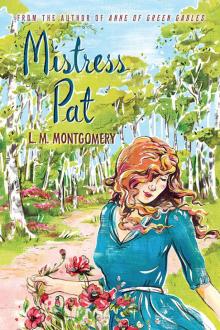 Mistress Pat
Mistress Pat A Tangled Web
A Tangled Web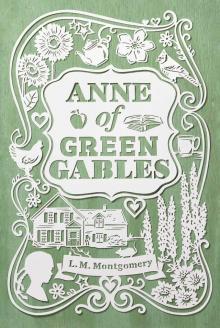 Anne of Green Gables
Anne of Green Gables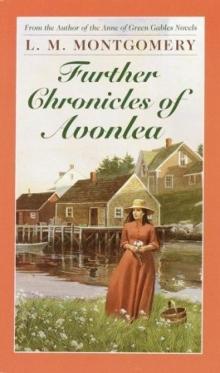 Further Chronicles of Avonlea
Further Chronicles of Avonlea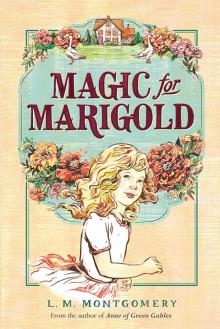 Magic for Marigold
Magic for Marigold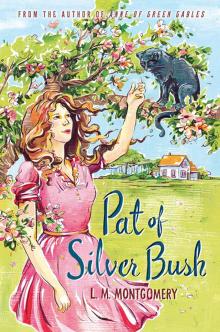 Pat of Silver Bush
Pat of Silver Bush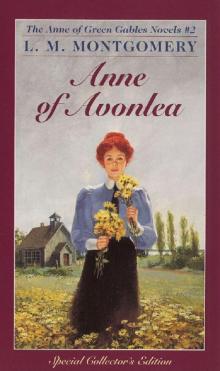 Anne of Avonlea
Anne of Avonlea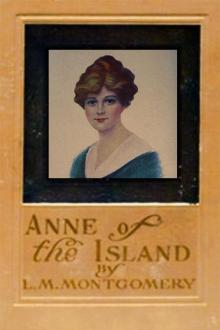 Anne of the Island
Anne of the Island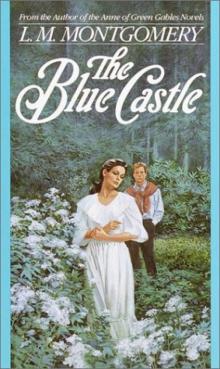 The Blue Castle
The Blue Castle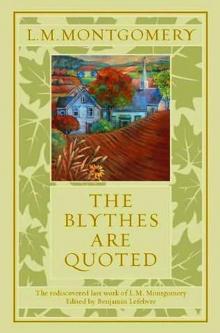 The Blythes Are Quoted
The Blythes Are Quoted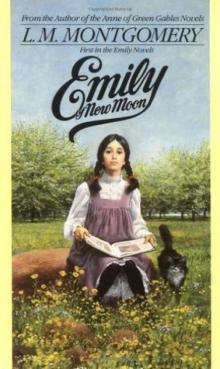 Emily of New Moon
Emily of New Moon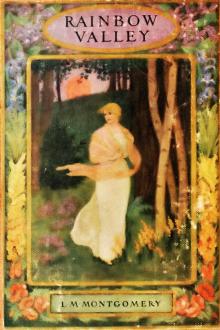 Rainbow Valley
Rainbow Valley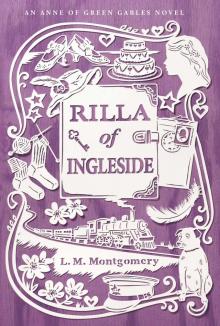 Rilla of Ingleside
Rilla of Ingleside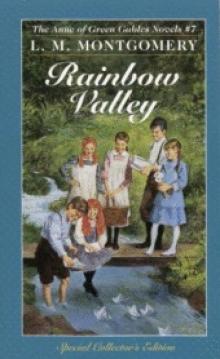 07 - Rainbow Valley
07 - Rainbow Valley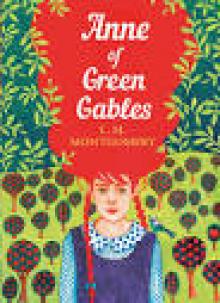 Anne of Green Gables (Penguin)
Anne of Green Gables (Penguin)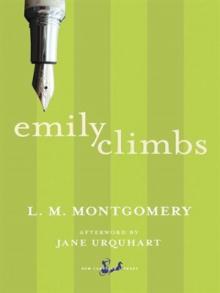 Emily Climbs
Emily Climbs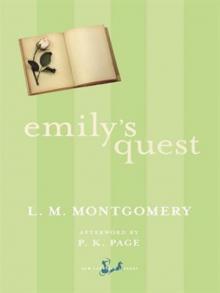 Emily's Quest
Emily's Quest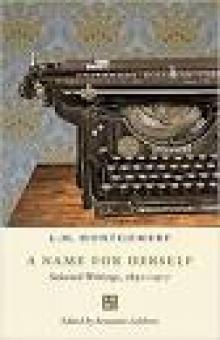 A Name for Herself
A Name for Herself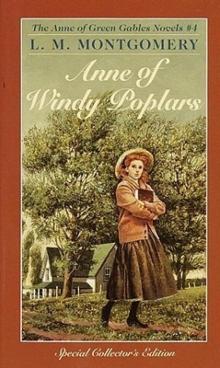 Anne of Windy Poplars
Anne of Windy Poplars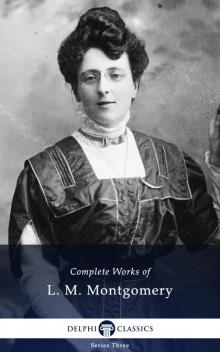 The Complete Works of L M Montgomery
The Complete Works of L M Montgomery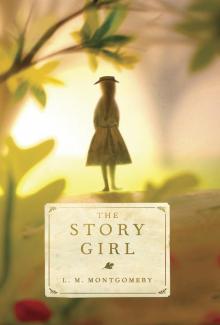 The Story Girl
The Story Girl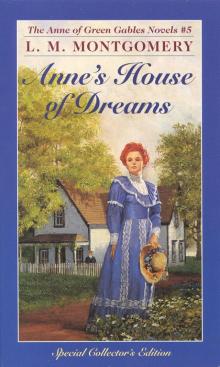 Anne's House of Dreams
Anne's House of Dreams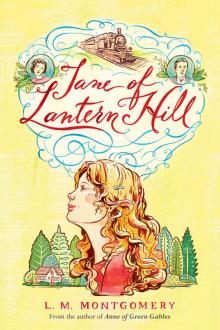 Jane of Lantern Hill
Jane of Lantern Hill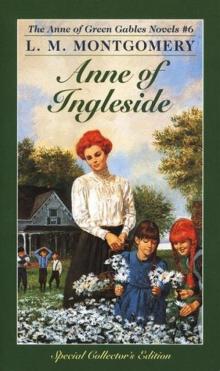 Anne of Ingleside
Anne of Ingleside